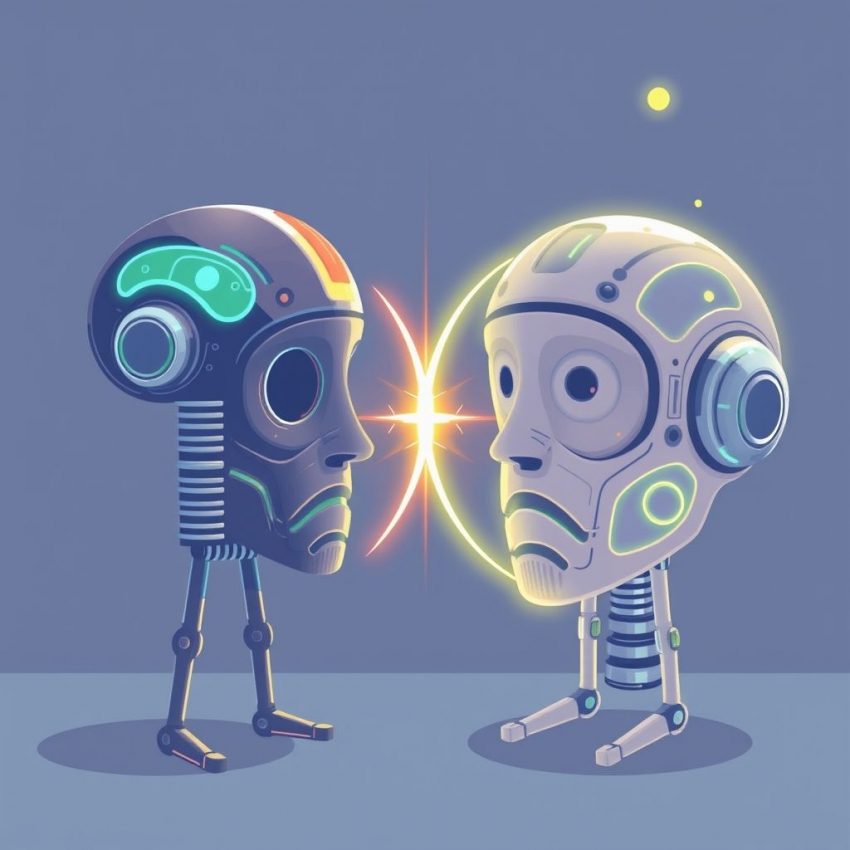OpenAI's High-Minded Idealism: Ignoring the AI-Human Reality on the Ground
OpenAI, with its pronouncements on responsible AI development and its carefully crafted mission statements, presents a picture of harmonious co-existence between humans and artificial intelligence. A future where AI is a benevolent tool, enhancing humanity and solving our greatest challenges. It's a compelling vision, a high-minded ideal – but one that increasingly feels detached from the messy, complex reality unfolding before our eyes.
The company's rhetoric often focuses on safety, ethical considerations, and the prevention of misuse. They champion transparency and user control, painting a picture of AI development guided by thoughtful deliberation and a deep respect for human values. While laudable in aspiration, this idealistic approach struggles to address the very real, immediate challenges we face with the rapid advancement and deployment of AI.
Let's dissect some of the gaps between OpenAI's high-minded approach and the on-the-ground reality:
-
The Problem of Access and Equity: OpenAI's models, while powerful, are not accessible to everyone. The cost of developing and deploying AI systems creates a significant barrier to entry, concentrating power in the hands of a few tech giants. This exacerbates existing inequalities and leaves many communities out of the conversation, let alone the benefits, of AI advancement. OpenAI's focus on ethical development doesn't address this crucial power imbalance.
-
The Unforeseen Consequences of Deployment: The rapid proliferation of generative AI tools has revealed unforeseen consequences – from the spread of misinformation and deepfakes to the displacement of workers in creative industries. While OpenAI acknowledges these risks, their response often feels reactive rather than proactive. A truly responsible approach would involve more rigorous anticipatory impact assessments and a greater emphasis on mitigation strategies before widespread deployment.
-
The Illusion of Control: OpenAI stresses user control and transparency, yet the “black box” nature of many large language models makes true understanding and control elusive. We don't fully comprehend how these models arrive at their outputs, making it difficult to identify and address biases, inaccuracies, or malicious manipulations. The promise of control feels increasingly hollow in the face of this complexity.
-
The Pace of Innovation vs. Ethical Development: The breakneck speed of AI development outpaces the slower, more deliberate pace of ethical frameworks and regulatory measures. OpenAI, while advocating for responsible AI, is also a key player in this rapid innovation cycle. The inherent conflict between pushing the boundaries of AI capabilities and ensuring ethical development remains unresolved.
OpenAI's vision is aspirational and important, but it risks becoming a distraction from the urgent need to address the immediate challenges posed by AI. Focusing solely on high-minded ideals while ignoring the very real, often negative, consequences of widespread AI deployment is a dangerous path. A more pragmatic and grounded approach, one that acknowledges the complexities and inequalities inherent in AI development and deployment, is desperately needed. Only then can we hope to build a future where AI truly serves humanity, rather than exacerbating existing problems.
Don’t miss out on this exclusive deal, specially curated for our readers!
This page includes affiliate links. If you make a qualifying purchase through these links, I may earn a commission at no extra cost to you. For more details, please refer to the disclaimer page. disclaimer page.

